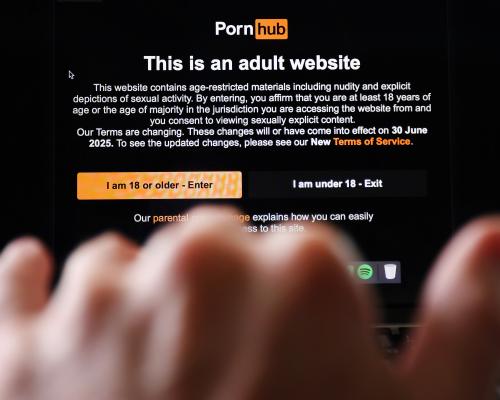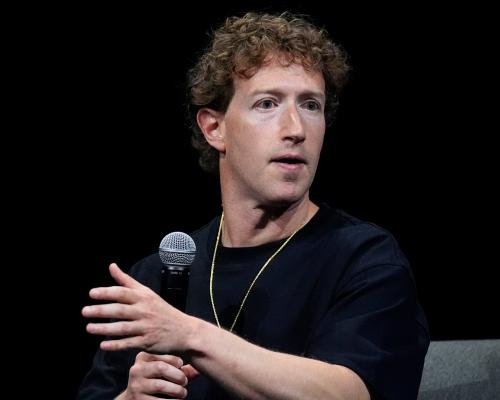
British visits to popular pornography sites have slumped following the introduction of strict age checks last month, data shows.
Daily visits to Pornhub, the UK’s most used porn site, fell from 3.6m on 24 July, the day before age-gating was introduced, to 1.9m on 8 August, a drop of 47%.
At the next most popular sites, XVideos and xHamster, visits fell 47% and 39% over the same period, according to the data from Similarweb, a digital market intelligence company.
The data, first reported by the Financial Times, appears to show the impact of strict age-checking rules from 25 July under the Online Safety Act. However, social media sites that also introduced age checks for material barred to under-18s, such as X and Reddit, did not experience dips in traffic over the same timeframe.
A spokesperson for Pornhub said: “As we’ve seen in many jurisdictions around the world, there is often a drop in traffic for compliant sites and an increase in traffic for non-compliant sites.”
The Online Safety Act contains rules on protecting children from harmful content that require sites or apps showing pornography to prevent children from seeing it.
Ofcom, the UK watchdog overseeing the act, has backed age assurance measures including: facial age estimation, which assesses a person’s likely age through a live photo or video; checking a person’s age via their credit card provider, bank or mobile phone network operator; photo ID matching, where a passport or similar ID is checked against a selfie; or a “digital identity wallet” that contains proof of age.
However, the act also requires online platforms to prevent children from viewing content including material that encourages suicide or self-harm, and to suppress the spread of content such as dangerous challenges, showing serious violence or inciting hatred against people. This has led to the age-gating of content such as an alcoholic recovery forum on Reddit and footage of an anti-migrant protest, which led to warnings that the new law was already over-regulating.
Ofcom maintains that the act does not suppress freedom of expression and has pointed to provisions that protect free speech. Breaches of the act carry a range of punishments, from formal warnings to a fine of up to £18m or 10% of global turnover or, in extreme cases, the site being blocked in the UK.
Nigel Farage’s Reform UK party pledged to repeal the act after the introduction of age checks, sparking a war of words in which the technology secretary, Peter Kyle, accused Farage of siding with “people like Jimmy Savile”. Farage described Kyle’s comments as “so below the belt”.
The introduction of age-checking has also led to a surge in the downloading of virtual private networks, which allow people to circumvent a country’s restrictions on viewing certain websites. The top five of Apple’s app store have been regularly dominated by VPN apps.







